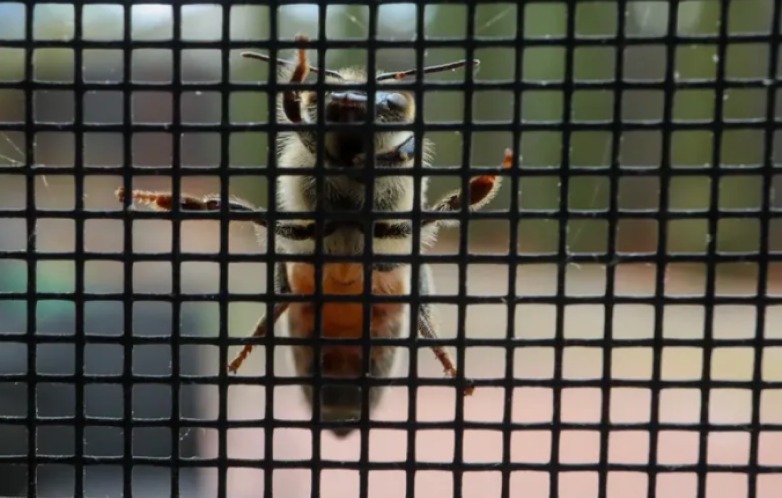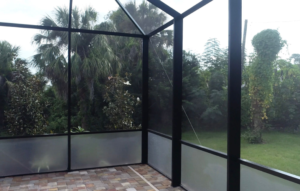When choosing a screen for your pool cage, there are several factors to consider to ensure you select the most suitable option for your needs. Here are key factors to keep in mind when picking different screens for your pool enclosure:
1. Screen Material: – Fiberglass: This is a popular choice due to its durability and resistance to corrosion and mildew. It provides good visibility and airflow while offering protection from insects. – Vinyl-Coated Polyester: These screens are highly durable and resistant to UV rays and weather elements. They are excellent for blocking strong winds and providing shade.
2. Mesh Size: – The mesh size determines the size of the openings in the screen. Common mesh sizes include 18×14 and 20×20. Smaller mesh sizes, like 20×20, provide better insect protection but may slightly reduce airflow and visibility compared to larger mesh sizes.
3. Color: – The color of the screen can affect the appearance of your pool cage. While traditional screens are typically silver or gray, some options come in different colors, allowing you to coordinate with your home’s aesthetics.
4. Durability: – Consider the longevity of the screen material. Look for screens that are designed to withstand the specific weather conditions in your area, such as intense sunlight, humidity, or saltwater exposure.
5. Visibility and Transparency: – Decide how much visibility and natural light you want in your pool area. Some screens offer excellent visibility and clarity, while others may slightly reduce the view.
6. Privacy: – Think about your privacy needs. If you want more privacy, you may opt for screens with a tighter mesh pattern or screens that have a privacy or solar shield layer.
7. UV Resistance: – UV-resistant screens are essential, especially in sunny locations like Florida. They protect against UV rays that can cause screen fading and damage.
8. Wind Resistance: – If you’re in an area prone to strong winds, look for screens designed to withstand high wind loads. Some screens are engineered to reduce wind resistance and prevent damage during storms.
9. Maintenance: – Consider the maintenance requirements of the screen material. Some materials are easier to clean and maintain than others.
10. Budget: – Your budget will play a significant role in your choice of screen material and quality. Ensure that your selection aligns with your budget while meeting your needs.
11. Local Climate: – Take into account the climate conditions in your area, such as extreme heat, humidity, or heavy rainfall. Choose a screen material that can withstand the local climate.
12. Local Building Codes: – Check local building codes and regulations to ensure that the chosen screen material and design comply with local requirements.
13. Professional Advice: – Consult with a professional pool cage builder or screen installer. They can provide valuable insights and recommend the most appropriate screen options for your specific circumstances.

By carefully considering these factors and possibly consulting with a professional, you can make an informed decision when choosing a screen for your pool cage that aligns with your preferences, budget, and local conditions.



